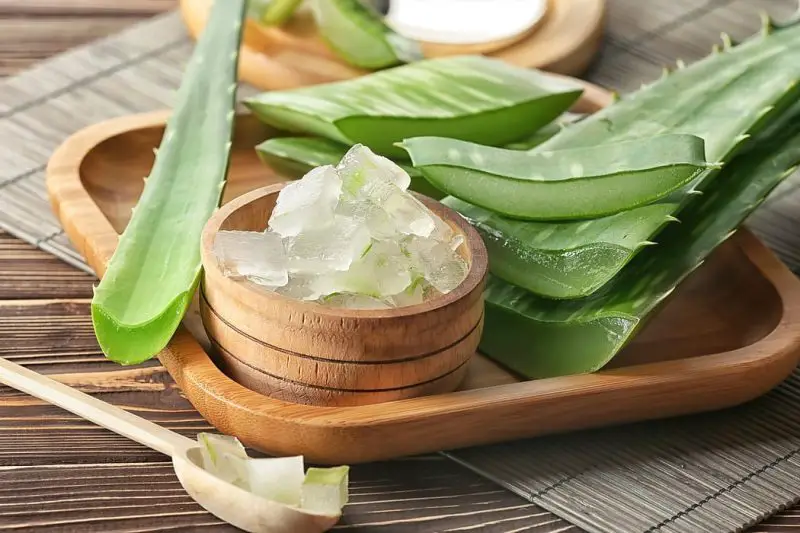Aloe vera has become one of the most trusted plants in homes around the world because it offers so many benefits with very little effort. Its thick leaves hold a soothing gel that people have used for centuries. This natural gel supports the skin, calms irritation, and promotes faster healing. Many see aloe as a simple houseplant, but it is far more than a decoration. Its ability to hydrate, nourish, and protect makes it valuable in both daily routines and long-term care. As interest in natural remedies grows, aloe vera continues to gain recognition for its gentle yet effective properties.
People use aloe vera for reasons that go beyond skin health. Its gel supports digestion, eases dryness, and offers cooling relief after sun exposure. Some also use it to improve scalp comfort or support hair moisture. The plant grows easily in warm rooms and needs very little water, which makes it appealing to busy households. Aloe vera feels like a small source of comfort that stays ready whenever you need it. Its benefits blend nature, simplicity, and everyday usefulness. Understanding what aloe vera is good for helps you appreciate why it remains such a popular and trusted plant.
Understanding the Natural Composition of Aloe Vera

Aloe vera offers so many benefits because its leaves contain a rich blend of natural compounds. The inner gel holds water, vitamins, and soothing polysaccharides that support the skin. These compounds create a cooling effect that calms irritation and dryness. The outer leaf layers contain protective substances that help the plant survive heat and drought. When used correctly, these elements provide gentle support for everyday needs. Understanding the plant’s natural structure helps explain why people use aloe as a reliable home remedy. Each part of the leaf contributes to its healing ability.
The gel also contains enzymes and amino acids that encourage moisture balance. These nutrients support the skin’s natural barrier and help maintain softness. The gel’s lightweight texture absorbs quickly without leaving residue. This makes it suitable for many skin types. Aloe vera also contains antioxidants that help protect cells from stress. These properties support both the skin and the body when the gel is consumed in safe amounts. The plant’s long history of use reflects its wide range of natural qualities. People appreciate aloe because it delivers effective results without harsh ingredients.
Its composition also explains why aloe vera adapts well to different uses. The gel works as a topical treatment, while the juice provides internal comfort. Each form offers different benefits but relies on the same natural compounds. The plant’s high water content gives it a hydrating base that supports many applications. Its protective sugars help soothe sensitive areas and reduce discomfort. When combined, these elements create a gentle yet powerful plant. Understanding its composition helps you see why aloe vera remains so trusted. Its natural balance makes it valuable for health, beauty, and daily care.
Why Aloe Vera Is So Widely Used Today
Aloe vera remains popular because it offers gentle support for many everyday concerns. People use it to soothe skin after sun exposure, calm redness, and hydrate dry areas without heavy creams. Its gel feels cool on contact, which makes it useful in warm climates or after long days outdoors. This simple relief makes aloe a trusted choice for families. Many appreciate that a single plant can provide quick comfort with minimal effort. Its natural feel and lightweight texture appeal to those who prefer mild, plant-based options for skin care and daily wellness.
Its versatility also plays a major role in its wide use. Aloe vera adapts to personal routines easily because it works for skin, hair, and even digestion when used correctly. Some apply it to support scalp moisture, while others rely on aloe juice to ease temporary digestive discomfort. The same plant that sits on a windowsill can provide gel for household needs. People enjoy this flexibility because it blends convenience with natural benefits. Aloe vera fits into both simple and detailed routines. This adaptability makes the plant valuable across different lifestyles.
Another reason for aloe vera’s popularity is its ease of cultivation. The plant grows well indoors and thrives with minimal watering. Even beginners can keep it healthy because the plant tolerates warm rooms and occasional neglect. This resilience makes aloe an ideal choice for people who want functional greenery without complicated care. As more households explore natural living, aloe vera stands out as a dependable helper. Its ability to support comfort, hydration, and mild wellness makes it a staple in many homes. Understanding these reasons reveals why aloe remains such a beloved and widely used plant.
Aloe Vera for Skin Hydration and Moisture Repair
Aloe vera is widely known for its ability to hydrate the skin with a gentle, refreshing touch. Its gel absorbs quickly and delivers moisture without leaving a heavy or greasy feeling. This makes it suitable for dry, oily, and sensitive skin. The plant’s natural polysaccharides help lock moisture into the skin’s surface, creating a soft and balanced texture. People often apply aloe after cleansing to restore hydration or use it as a cooling layer during warm weather. Its lightweight nature makes it ideal for daily use and supports smoother, calmer skin over time.
The gel also helps repair areas that have become dry or irritated. When applied to rough patches, it provides soothing comfort and encourages the skin to retain moisture more effectively. This creates a gradual improvement rather than a temporary fix. The plant’s natural enzymes gently support the skin’s renewal cycle, helping it maintain a healthier appearance. Aloe works particularly well in climates with fluctuating temperatures, where the skin may experience sudden dryness. By strengthening the hydration barrier, the gel reduces discomfort and keeps the skin feeling balanced.
Aloe vera’s compatibility with multiple skin types explains why many people rely on it for moisture repair. It blends easily with other skincare steps, allowing users to combine it with creams, toners, or serums. Some prefer applying a thin layer before bed so the skin absorbs moisture overnight. Others use it in the morning to prepare the skin for makeup or sun exposure. In all cases, aloe provides natural hydration without causing heaviness. This versatility makes it a key part of many skincare routines. Its gentle, consistent results highlight why aloe remains an essential plant for maintaining soft, healthy skin.
Aloe Vera for Calming Irritations and Supporting Skin Recovery
Aloe vera is highly valued for its ability to calm irritated skin with a soothing, cooling effect. The gel inside each leaf contains natural compounds that reduce discomfort and soften sensitive areas. When applied to redness or mild irritation, it eases heat on the surface of the skin and brings quick relief. This gentle response makes aloe a preferred choice for people with easily reactive skin. Its mild nature works without overwhelming the area, allowing the skin to settle and regain balance. Many use aloe after long days outdoors or after contact with environmental elements.
Its calming qualities also support recovery from dryness or temporary irritation. The gel forms a light protective layer that shields the skin while maintaining hydration. This helps the skin restore its natural barrier, which is often weakened during irritation. Aloe’s lightweight texture allows it to work without clogging the pores. As the skin receives moisture, it becomes more resilient and less prone to discomfort. Over time, aloe supports smoother recovery and steadier skin tone. These gradual improvements make it ideal for daily or occasional use.
Aloe vera works well alongside other gentle skincare products, making it adaptable for different routines. Some apply it before moisturizing to enhance the soothing effect. Others use it alone on irritated areas that need simple, clean support. Its cooling properties help reduce the appearance of stress on the skin, giving a refreshed feel. People appreciate aloe because it works naturally and consistently, especially when the skin needs comfort. This calming ability is one of the reasons aloe remains a trusted remedy around the world. Its gentle approach supports recovery without harsh ingredients, offering steady relief that feels both natural and effective.
Aloe Vera for After-Sun Relief and Cooling Comfort
Aloe vera has long been used as a natural source of after-sun comfort because its gel delivers instant cooling to warm or stressed skin. When applied after sun exposure, the gel helps reduce surface heat and restores moisture that the skin loses outdoors. Its soothing effect eases tightness and dryness that often appear after time in strong sunlight. This gentle cooling sensation makes aloe one of the most trusted options for after-sun care. People appreciate how quickly it absorbs and how light it feels during use, especially in hot climates where the skin needs fast relief.
The plant’s natural compounds support the skin’s recovery process by helping it regain hydration and softness. Aloe forms a lightweight protective layer that shields the surface without blocking air flow. This allows the skin to breathe while receiving steady moisture. Over time, regular application helps the skin stay balanced and comfortable after repeated sun exposure. Its mild properties make it suitable for many skin types, including sensitive or dry skin that reacts strongly to heat. Aloe vera provides comfort through hydration rather than heavy oils, making it ideal for warm or humid environments.
Many people use aloe vera gel as part of their summer or vacation routine because it works consistently and pairs well with other products. Some apply it immediately after coming indoors, while others use it before bedtime to support overnight recovery. Aloe can also complement sunscreen use by providing post-sun hydration without interfering with protective products. Its natural texture blends easily into daily habits, offering simple relief after outdoor activities. This cooling and restorative ability explains why aloe vera remains a staple in after-sun care. Its gentle support makes outdoor time more enjoyable and reduces the discomfort that follows.
Aloe Vera for Supporting Hair and Scalp Comfort
Aloe vera offers gentle support for the scalp by providing hydration without heaviness. Its lightweight gel helps calm dryness and reduces the tight feeling that often appears when the scalp lacks moisture. When massaged onto the scalp, the gel cools the skin and restores balance. This makes aloe a useful option for people who experience periodic dryness from weather or styling habits. The gel absorbs quickly and leaves no residue, allowing the scalp to feel refreshed. Regular use helps maintain softness and comfort, especially in warm or dry climates where moisture loss happens easily.
Aloe vera also supports hair health by adding light hydration to the strands. Its natural compounds help smooth the hair’s surface, giving it a softer and more manageable feel. This makes the hair easier to style without creating oiliness or weight. Some people use aloe as a pre-shampoo treatment to reduce dryness. Others apply a thin layer after washing to support shine and smoothness. Aloe blends easily with different hair routines because it works gently and does not interfere with other products. Its balancing effect helps the hair stay hydrated without becoming greasy.
Many appreciate aloe vera because it calms the scalp while offering mild conditioning benefits to the hair. Its soothing qualities can ease temporary discomfort from styling tools or environmental changes. When used consistently, it helps maintain a cleaner, fresher feeling at the roots. This gentle approach makes aloe suitable for various hair types, including dry, fine, or wavy hair. People choose aloe because it supports scalp comfort and hair softness without harsh ingredients. Its natural balance of moisture and calm makes it a reliable addition to everyday hair care.
Aloe Vera for Digestive Comfort and Gentle Internal Support
Aloe vera is also known for the gentle support it offers when used in safe, properly prepared forms. Aloe vera juice, when processed to remove irritating compounds, can help maintain hydration inside the digestive system. Its natural water content supports smoother digestion and helps the body stay balanced during daily routines. Many people use it to ease occasional dryness or discomfort after heavy meals. The liquid form provides a cooling, soothing effect inside the digestive tract, making it popular among those who prefer natural approaches to wellness. Its mild nature allows for steady, comfortable support without strong sensations.
The plant’s natural compounds also play a role in creating this internal comfort. Aloe juice contains polysaccharides that help coat the digestive lining, offering a soft, calming layer. This protective feel can be helpful during moments of temporary irritation. Some find that aloe supports a more balanced digestive rhythm when used responsibly. It is important to use commercially prepared aloe beverages that remove aloin, a compound that can be harsh if consumed in raw form. When used correctly, aloe vera juice blends easily into daily habits, such as morning routines or light meals.
People appreciate aloe vera’s internal benefits because they complement the plant’s well-known topical uses. The same qualities that soothe the skin can create a sense of internal ease when processed for safe consumption. Its gentle hydration supports the body without overwhelming it. While aloe should always be used mindfully, many find that it provides a refreshing and natural form of digestive comfort. This soft internal support is one reason aloe remains a trusted plant. It offers harmony for both the inside and outside of the body, showing how versatile and valuable this natural remedy can be.
Aloe Vera for Boosting Natural Hydration and Everyday Wellness
Aloe vera supports everyday wellness through its unique ability to hydrate both the skin and the body. Its gel contains a high percentage of water, along with natural sugars that help the skin hold moisture longer. When used topically, aloe provides a refreshing layer that feels light but effective. This hydration improves softness and comfort throughout the day. Many people apply aloe in the morning to prepare the skin for weather changes or dryness caused by indoor environments. Its gentle texture helps the skin stay balanced without clogging pores or creating heaviness. This steady hydration makes aloe suitable for daily use.
Aloe vera also contributes to internal hydration when consumed in properly prepared forms. Aloe juice, free from its bitter compounds, delivers a clean source of moisture that supports the body’s natural balance. This mild hydration can be helpful during warm weather or after exercise. Some drink aloe juice to support overall well-being and maintain digestive comfort. Its refreshing taste pairs well with simple routines, such as morning meals or post-workout hydration. The combination of internal and external moisture support makes aloe valuable for daily wellness goals.
The plant’s gentle effects also create a sense of calm and routine that enhances personal care habits. Aloe vera fits easily into wellness practices because it feels natural and soothing. Its ability to hydrate skin, hair, and the digestive system highlights its versatility. People appreciate how one plant can support multiple aspects of daily health without strong ingredients. Whether applied to the skin or used mindfully in beverages, aloe brings comfort, moisture, and balance. This broader role in hydration and wellness is one of the reasons aloe vera remains a meaningful part of many self-care routines.
Aloe Vera for Supporting the Body’s Natural Healing Process
Aloe vera is often valued for how gently it supports the body’s natural healing rhythm. Its gel contains soothing compounds that help calm stressed areas of the skin, allowing the body to recover more comfortably. When applied to dry or irritated patches, aloe creates a light protective layer that shields the surface while still allowing airflow. This balance helps the skin maintain moisture without becoming overwhelmed. Many people turn to aloe during seasonal changes or after exposure to harsh environments because it brings quick comfort. This steady support encourages the skin to regain softness and stability.
The plant’s natural antioxidants also play a role in this healing process. These antioxidants help protect the skin from daily stressors that can weaken its outer layer. As the gel absorbs, it delivers hydration and gentle nourishment that promote a smoother texture. With consistent use, aloe can help the skin stay resilient, making it easier for the body to repair itself. Some apply it as part of a nighttime routine to enhance recovery while they sleep. This slow and steady benefit makes aloe vera a meaningful companion in long-term skin care.
Aloe’s healing support extends to minor everyday discomforts as well. Its cooling feel eases tension on the skin after heat, dryness, or friction. This makes it a practical option for active individuals, frequent travelers, or anyone experiencing environmental stress. Because the gel works without heavy oils, it suits a variety of skin types. People appreciate aloe’s gentle approach because it enhances the body’s natural ability to restore itself. Its soothing qualities help create a sense of comfort and balance, showing why aloe vera remains a trusted plant for healing support.
Aloe Vera for Reducing Redness and Enhancing Skin Tone Balance
Aloe vera helps reduce visible redness by delivering a cooling, soothing layer that calms the skin’s surface. Its natural gel absorbs quickly and brings relief to areas affected by heat, dryness, or environmental stress. When applied regularly, aloe supports the skin’s ability to settle and regain stability. This gentle action makes it a dependable choice for people who deal with periodic redness or sensitivity. Aloe’s lightweight texture prevents irritation and allows the skin to breathe while receiving steady hydration. Over time, the gel helps the skin feel more comfortable and balanced.
The plant’s natural antioxidants also contribute to a more even-looking skin tone. These antioxidants help protect the skin from stress that can cause dullness or uneven patches. As aloe nourishes the surface, the skin gradually appears smoother and more consistent. Some people apply aloe before moisturizing to enhance its calming effect. Others use it as a simple standalone treatment, especially on days when the skin feels reactive. With continued use, the appearance of redness often becomes less noticeable. This subtle improvement helps the skin look fresher and more radiant without harsh treatments.
Aloe’s ability to support tone balance makes it suitable for many daily routines. It works well on sensitive areas that need extra care and blends easily with other mild skincare products. Many appreciate how aloe offers comfort while helping maintain a steady, even complexion. This combination of soothing and protective properties explains why aloe vera is used so widely in skincare. Its simple, natural approach makes redness easier to manage and helps the skin maintain a calmer, healthier look.
Aloe Vera for Strengthening the Skin’s Moisture Barrier
Aloe vera plays an important role in supporting the skin’s natural moisture barrier, which is essential for long-term hydration and resilience. Its gel contains natural sugars that bind water to the surface of the skin, helping it stay moist for longer periods. When applied consistently, aloe reinforces the outer layer and reduces moisture loss caused by dry air or frequent washing. This makes aloe valuable for people living in hot, dry, or fluctuating climates. The gel’s lightweight texture allows it to sit comfortably on the skin without clogging pores or creating heaviness.
As aloe strengthens the moisture barrier, the skin begins to feel smoother and more supple. This barrier support also reduces the appearance of roughness or dullness that often comes from dehydration. Aloe’s gentle hydration gives the skin a calm, refreshed appearance and helps it withstand daily stress from the environment. Many people apply aloe before using heavier moisturizers because it creates a soft base that enhances absorption. Others use aloe alone as a simple step in a minimal routine. Its natural balance makes it adaptable for different skin needs.
Aloe’s nourishing effect extends beyond immediate moisture. When the barrier becomes stronger, the skin stays more resilient and less prone to irritation. This resilience helps maintain long-term comfort, even when the weather changes or the skin encounters mild stress. People appreciate aloe because it supports this balance naturally and without harsh additives. Its simplicity makes it easy to incorporate into daily care. Strengthening the skin’s moisture barrier is one of aloe vera’s most valuable benefits, helping the skin stay hydrated, calm, and healthy throughout the day.
FAQs About What Aloe Vera is Good For
What makes aloe vera beneficial for daily skin care?
Aloe vera supports daily skin care because its gel hydrates quickly, absorbs without heaviness, and soothes irritation from heat or dryness. Its natural sugars lock in moisture, while antioxidants help protect the skin from everyday stress. With consistent use, aloe strengthens the skin barrier and promotes a softer, more balanced complexion.
Can aloe vera help with after-sun discomfort?
Yes. Aloe vera provides immediate cooling relief after sun exposure by reducing surface heat and restoring lost moisture. Its gel forms a light protective layer that allows the skin to breathe while calming redness. Regular application supports faster comfort and helps the skin maintain softness during warm seasons or outdoor activities.
Is aloe vera safe to use on sensitive skin?
Aloe vera is generally safe for sensitive skin because it delivers hydration without harsh ingredients. Its lightweight gel calms irritation and reduces discomfort from dryness or environmental changes. However, patch testing is recommended, as some individuals may react to natural plant compounds. Overall, aloe remains a gentle choice for delicate skin.
Can aloe vera support digestive comfort when consumed?
When processed properly, aloe vera juice can support digestive comfort by offering soothing hydration and helping maintain a balanced digestive rhythm. It should only be consumed in commercially prepared forms that remove aloin, a natural compound that may cause irritation. Used responsibly, aloe juice provides mild internal support and refreshing daily hydration.
Does aloe vera improve scalp and hair condition?
Aloe vera helps maintain scalp comfort by delivering moisture without oiliness. Its cooling texture reduces dryness and supports a fresher feel at the roots. When applied to the hair, it smooths the strands and enhances softness. Consistent use helps balance moisture levels, making hair more manageable and naturally healthier over time.
Conclusion
Aloe vera remains one of the most trusted natural remedies because it supports comfort, hydration, and everyday wellness with gentle ease. Its versatile gel soothes the skin, refreshes the scalp, and offers mild digestive support when prepared correctly. People rely on aloe because it fits into simple routines while delivering steady, meaningful benefits. Whether used for calming irritation, restoring moisture, or enhancing daily care, the plant brings a sense of balance and natural relief. With consistent use, aloe vera becomes more than a household plant. It becomes a reliable companion for healthier, more comfortable living.






